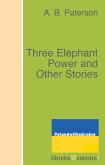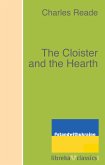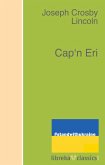D. H. Lawrence's 1915 novel "The Rainbow" is the story of three generations of the Brangwens family. While tame by today's standards, "The Rainbow", for its frank treatment of human sexuality, caused Lawence to be prosecuted on an obscenity charge in England when it was first published. Through richly personal characterizations, "The Rainbow" deals profoundly with the very nature of human relations as it explores the sexuality of Ursula Brangwen and her mother, Anna Brangwen.
Dieser Download kann aus rechtlichen Gründen nur mit Rechnungsadresse in A, B, BG, CY, CZ, D, DK, EW, E, FIN, F, GR, H, IRL, I, LT, L, LR, M, NL, PL, P, R, S, SLO, SK ausgeliefert werden.









